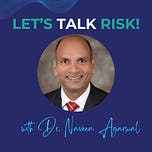Risk practitioners in MedTech now have a unique opportunity to help accelerate development and post-market improvement of AI/ML enabled medical devices while also reducing the regulatory burden.
PCCP, or Pre-Determined Change Control Plan1, is a novel regulatory approach that allows device manufacturers to include planned changes in their initial submission and avoid additional submissions in the post-market phase when these changes are implemented.
This is even more important for AI/ML enabled medical devices, which are expected to learn from new data in real-world applications to improve both user experience and performance without compromising patient safety.
As an example, Apple recently utilized a tailored PCCP approach in their regulatory submissions to receive advance clearance for their planned post-market changes. In case of the Hearing Aid Function2, they focused on features to improve user experience. In the Sleep Apnea Notification function (SANF), on the other hand, they focused on improving the performance of the core AI model based on real-world data. In both cases, they proposed a rigorous verification and validation plan, and labeling updates.
Risk managers can play a key role in planning these modifications using a risk-based approach. They can help develop testing and implementation protocols. Finally, they can help articulate the overall benefits and risks to convince the FDA that these planned changes would improve safety and effectiveness.
Risk practitioners therefore have an opportunity to become more strategic and influential by playing a proactive role. They can collaborate with regulatory professionals, product developers and clinicians right from the start of product development.
Listen to the 22-minute audio summary above that covers the following topics:
Key differences between FDA’s draft and final PCCP guidance
Lessons learned from Apple’s tailored approach to PCCP
Understanding benefits and risks of PCCPs
Opportunities for risk practitioners
Challenges in implementing PCCPs
Disclaimer
This article was prepared with the help of Google NotebookLM3, an artificial intelligence research assistant, using the following sources:
FDA Draft and Final Guidance: PCCP for AI/ML enabled devices4.
Apple De Novo: Hearing Aid Feature, Decision Summary5.
Apple 510k: Sleep Apnea Notification Feature (SANF)6.
Caption Health De Novo: Automated Ejection Fraction Software7.
Notes created using Google NotebookLM in response to user prompts.
All output(s), including the audio summary, were reviewed by a human for accuracy and relevance. This article is intended for educational purposes only and should not be considered as regulatory advice.
Google: NotebookLM, accessed December 08, 2024. NotebookLM does not use any other source of information except those specifically provided by the user.
FDA: DEN 230081 Decision Summary, Issued December 2023.
FDA: K240929 Summary, Issued September 2024.
FDA: DEN22063 Decision Summary, Issued September 2022.














Share this post